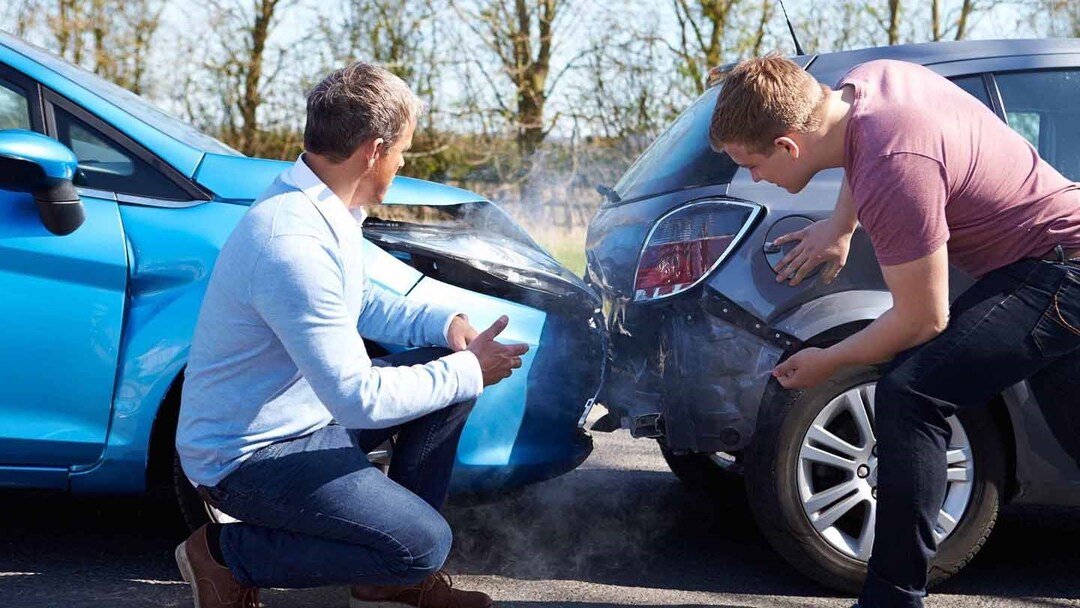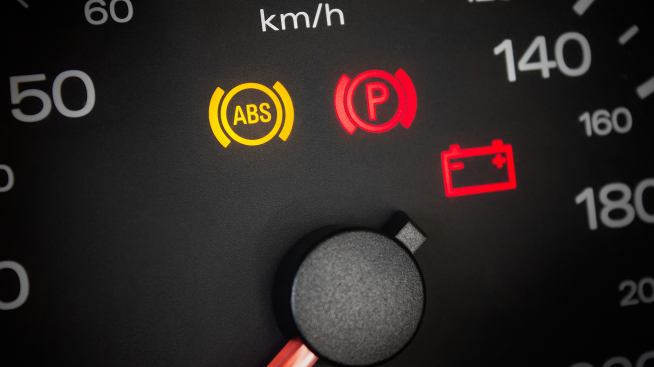What to do in a fender bender

It’s safe to say that no driver looks forward to hearing the shocking “crunch” of a fender bender. Given how common these accidents can be, it can be helpful to understand what to do in a fender bender accident.
What is a fender bender?
A fender bender is an informal term referring to a type of minor accident involving one or more cars and (often minimal) damage to the front or back of the vehicle.
What to do after a fender bender accident
In the immediate aftermath of a fender bender accident, consider having a step-by-step game plan to protect yourself and your vehicle, while also being ready for the logistics of potentially filing a collision insurance claim. Some basic steps include:
- Move to a safe location: While many fender benders occur in lower-risk environments like parking lots, they could happen anywhere, including areas where you and your car may not be safe. After a fender bender, move your car out of harm's way before exiting your vehicle.
- Check for injuries: After you’re in a safe location, check to see if anyone involved in the accident sustained any injuries—if so, alert emergency services immediately and inform them that medical assistance is needed. Note that not all injuries are obvious, such as head trauma. When in doubt, get checked out by a medical professional as soon as you can after an accident.
- Inform authorities: If medical services don’t appear to be needed right away, you can call your local police station, either 911 or the non-emergency phone number, to report the accident. During this step, ask law enforcement for a copy of the accident report, as your insurance company will likely ask for it later. Calling law enforcement may not always be necessary but is generally a good rule to follow, which we’ll discuss in more depth below.
- Exchange information: Next, you’ll want to share insurance, contact and vehicle information with the drivers involved as you typically need this information to file a claim with your insurance provider.
- Take pictures and jot down notes: Documenting your fender bender accident can go a long way to making your case as insurers gather evidence to determine who was at fault. Noting the make and model of the cars involved and taking pictures of any damage done to your vehicle could help accelerate the insurance claim process.
- Notify your insurance company: After a fender bender is to notify your insurance company of the accident so they can add it to their records, and so you can begin a claims process if your vehicle suffered any damage.
Should you call the police in a fender bender?
Contacting law enforcement and filing an official police report after any motor accident, even a minor fender bender, is generally considered best practice. Even if there are no apparent injuries after the accident occurs, it’s best to request medical services as well—injuries, such as concussions or whiplash, may present themselves hours or even days after an accident.
Though in some circumstances drivers may not be required to file an accident report with law enforcement for accidents that only result in property damage, it’s best to contact local authorities and obtain an accident report to help with things like:
- Preventing another driver from fleeing the scene, especially if they may have been at-fault. Additionally, if the fender bender is a result of a road rage incident, you may want police presence involved for your own protection.
- Covering your legal rights if injuries present themself after the initial collision occurs and you or the other party decide to pursue legal action.
- Simplifying the insurance process and helping justify your claim if you believe you were not at fault. Depending on your insurance provider, some minor accidents may not affect your insurance rates if you have evidence you weren’t at fault—like if you were the victim of a hit-and-run.
While reporting a minor fender bender to your local authorities may be optional, there are other instances where you are legally required to report an accident, including:
- If someone was injured or killed in the accident, or if any domestic animals or pets were hurt or killed in the accident.
- If a parked car is damaged and you can’t find the owner.
- If other property, like a railing or sign, is damaged.
Reporting to your state’s Department of Motor Vehicles (DMV)
Depending on your state, you may be required to file an accident report with your state’s DMV if you are involved in a fender bender accident where there’s damage to any individual’s property (including your own) amounting to or exceeding a certain threshold.
For instance, in the state of New York, you are required by the NY State Vehicle and Traffic Law to file an accident report if you’re involved in any accident where there’s damage over $1,000ec-ny-dmv-crash-rpt even if the damage was confined to just your own property..
Do fender bender accidents affect insurance?
If you file an accident claim with your auto insurance company for a fender bender, your car insurance rate may go up. However, the amount it rises usually depends on if the fender bender is a “chargeable accident,” i.e., an accident where you were more than 50% at-fault and the incident resulted in property damage.
What is accident forgiveness?
If your insurance policy includes accident forgiveness, your insurer may “forgive” your accident after all claims are settled, and not raise your rates, depending on the circumstances. However, despite being “forgiven” by your insurance provider, these accidents will remain on your driving record, which could affect your rates if you decide to switch insurers down the road.
Adding accident forgiveness to your insurance policy usually comes at an added cost and is typically limited to one accident per policy.
Fender bender accidents that don’t increase insurance rates
While it’s possible your insurance rates will rise after filing a claim, there are specific circumstances where you may be in the clear. For example, most car insurance providers won’t increase your rates if you were rear-ended but not charged with a moving traffic violation related to the incident.
In these situations, your insurance company may require you to provide a police report of the incident to prove your claim. This is where always notifying the authorities and obtaining police reports for fender benders could prove beneficial.
In summary
Fender benders can be an unpleasant experience and it can pay to be prepared for them. Learning what to do in a fender bender, and the moments immediately after, can help you feel better prepared to protect yourself and navigate the insurance process after the accident.



